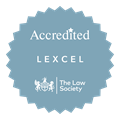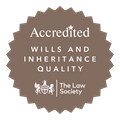ENFRANCHISEMENT | YVA GUIDE: EXTENDING YOUR LEASE OR BUYING YOUR FREEHOLD
Did you know that since 1993 Leaseholders have the right to collectively purchase the
Freehold of their building and the right to extend their Lease by an additional 90 years with no ground rent?
The Leasehold Reform Housing and Urban Development Act 1993 (‘the 1993 Act’) gives Leaseholders rights that many people do not
know exist. YVA Solicitors has a specialist team dedicated to assisting tenants to exercise their Statutory Rights.
WHAT IS LEASEHOLD ENFRANCHISEMENT?
Leasehold Enfranchisement has two heads governed by the 1993 Act.
- The right for leaseholders to collectively purchase the freehold of their Building and remove their Landlord altogether. This known as Collective Enfranchisement.
- The right for Leaseholders to extend their Lease by an additional 90 years and reducing their ground rent to a peppercorn. This is known as a Lease Extension.
Provided that the Leaseholder(s) qualify under the provisions in the Act, this absolute right cannot be denied by a Landlord.
In both cases, value is undoubtedly added to the Leasehold Property because it will either benefit from a share of freehold or a longer lease.
COLLECTIVE ENFRANCHISEMENT
Why do I benefit from owning a share of my Freehold?
- Value is inevitably added to the Property as it can be sold with share of freehold
- The removal of an unscrupulous Landlord who overcharges for administrative fees and service charges
- You and the participants would take full control of the management of the Building no doubt resulting in better upkeep and lower service charges
- No ground rent is payable
What are the qualifying criteria?
- Not less than two thirds of the Building must be let on long leases
- Not less than 50% of the leaseholders in the Building must participate
- Not more than 25% of the building is used for non residential purposes
What is the procedure?
Once the requisite number of Leaseholders have decided to proceed a valuation must be carried out. This must be carried out by a professional valuation surveyor who will value the Freehold in accordance with the valuation method set out in the 1993 Act.
The Leaseholders then serve a Notice of Claim on the Landlord. The Landlord has a period of two months to serve a counter notice during which time he will obtain his own valuation. Once the counter notice has been served, there is a period of up to 6 months to negotiate. Very often, the dispute issue is the premium and the negotiation is carried out by the respective valuers.
If a premium is agreed within the specified time frame, the matter can proceed to completion. If terms are not agreed by the period of 6 months following the service of the Landlord’s counter notice, the Leaseholders must apply to the First Tier Tribunal (Property Chamber) who will determine the matter in dispute. Once this has been determined, the sale can proceed to completion.
What will it costs us?
As well as the premium, valuation costs and legal costs, Leaseholders are responsible for the Landlord’s reasonable legal and valuation costs from the moment the initial notice is served on the Landlord. However, if the matter proceeds to Tribunal each party is responsible for its own costs.
LEASE EXTENSION
This is an individual right of a Leaseholder to extend their lease. Therefore, the Leaseholder does not require co-operation from coLeaseholders. Valuations on the open market show that properties with lease length of 90 years of unexpired term would be more valuable with a longer lease. Therefore, whatever a tenant pays to extend their Lease most probably adds at least the same amount in value. Remember 4 things:
- The less time a lease has to run, the more it will cost to extend;
- Leases with less than 70 years may be difficult to mortgage;
- Most lenders will not lend on leases with less than 60 years of unexpired term;
- A lease with less than 80 years of unexpired term will cost more to extend due to the Marriage Value rule.
This screams out: Get your lease extended sooner rather than later. It is a fact that extending your lease will cost more the longer you leave it.
What are the qualifying criteria?
- The Lease must be a long lease meaning it was granted for a term of 21 years or more
- The Leaseholder must have owned the Property for not less than 2 years prior to the exercise of the right
Procedure & Costs
The procedure and costs are exactly the same as Collective Enfranchisement as mentioned above save that upon completion, a new lease replacing the existing lease will be granted for an additional term of 90 years on top of the existing unexpired term and the ground rent will be reduced to a peppercorn.
Marriage Value or 80 Year Rule
Once the term of your lease dips below 80 years, marriage value will apply. Marriage value is taken as the potential increase in value of your flat which arises from the grant of an additional 90 year lease extension to your current term. The Act, requires that the increase in value shall be shared 50:50 between the two parties – Landlord and Leaseholder. The marriage value should be split between the two parties, since the uplift in value only arises with the Landlord’s action of granting a new lease. There is no quick calculation for knowing this figure and professional advice from a valuer is necessary as they will rely upon their knowledge and experience to assess the increase in value in the flat arising from the new lease.
Paying marriage value can seriously increase the valuation of extending the lease. It would therefore be in your best interests to extend your lease on your property before it goes below 80 years. The also affects the value of a collective enfranchisement claim in the leases that have less than 80 years of unexpired term
What happens if I want to buy a property and I am concerned about the length of the Lease but do not want to wait two years?
The Act allows the initial notice of claim to extend the lease to be served by the existing Leaseholder (the seller) and then upon completion of the sale the benefit of the claim assigned to you therefore you can carry on the procedure. This method is commonly used by people who buy a flat and do not want to wait two years to extend especially where the lease is approaching 80 years of unexpired term.
What can YVA do for you?
YVA Solicitors has a long history of representing both Landlords and Tenants in relation to Leasehold Enfranchisement. YVA Solicitors are also a member of the Association of Leasehold Enfranchisement Practitioner. We offer a FREE NO OBLIGATION lease health check to advise you of your best options and recommended next steps.
What next?
Should you wish to discuss matters generally or require case specific advice please do not hesitate to contact the Landlord and Tenant Department at YVA Solicitors.
Article in PDF: Enfranchisement Flyer
Tags:
Possession Proceedings – Unprecedented Changes (PD 55C)
The purpose of the changes is to take into account the effect of the pandemic on all parties maintaining confidence in fairness of outcomes, encouraging compromise and to ensure the defendants are provided with legal advice.
Current Restrictions
- Moratorium on forfeiture of business tenancies extended until 31 December 2020 and is further extended until 31 March 2021.
- In Commercial Rent Arrears Recovery proceedings (“CRAR”) the minimum unpaid rent must be equivalent to 276 days rent until 24 December 2020 and 366 days from 25 December 2020. The restriction on landlords using CRAR to recover unpaid rent will also automatically extend to the end of March, in line with the moratorium’s expiry date. This allows businesses sufficient breathing space to pay rent owed.
- PD 55C: Possession Proceedings
- Reactivation Notice required for stayed claims
- New notice requirements for new claims
Overall Arrangements
- Emphasis on compromise
- Legal advice and assistance for defendants
- Non-statutory best practice guidance:
– MHCLG guidance for private and social landlords and tenants
– NRLA Pre-Action Plan: Managing Arrears and avoiding possession claims
– FCA guidance ‘Mortgages and Coronavirus’ (to 31.7.2021)
– MHCLG Code of Practice for commercial property relationships during the Covid-19 pandemic (to 24.6.2021)
New Listing Priorities
- Court will no longer fix hearing dates when claim is issued
- No more block listing
- 21 days’ notice
- Cases will be given priority if they involve the following:
- Anti-Social behaviour allegations;
- Extreme rent arrears;
- Squatters or illegal occupiers and persons unknown;
- Fraud or Deception;
- Unlawful Subletting;
- Allegations of abandonment of the Property;
- Local authority temporary accommodation needed for reallocation
Covid-19 Case Marking
- Intended to highlight settlement suitability and assist the court in dealing with listing, case management and the exercise of discretion
- Any Defendant or private Claimant may request a case is marked
- Specified information required
- Upon making request must inform all other parties. Request will result in case marking unless objection raised
- Judge may also direct that a case is Covid-19 marked
Review and Substantive Hearing Dates
The Review (R) Date:
– a 5-minute non-attended appointment on the documents
– requirements of the claimant relating to bundles before R date
– requirement that claimant is available to discuss the case during the R date
– consequence of failure to resolve case on the R date
The Substantive (S) Hearing Date:
– a 15-minute hearing attended by all parties 28 days after the R Date
– a physical hearing unless the parties agree otherwise or contingency arrangements apply
– unless case resolved, a decision by the Court or further case management directions
– adjournment considered without application where advice not yet made available to Defendants and consequences of order ‘may be serious’
Accelerated Possession Claims
- As with existing rules, the court can still make a possession order without a hearing
- Reactivation notice requirements apply for stayed claims
- The same priorities apply as with normal cases in the order in which they will be dealt with
- Will be referred to judges “at a manageable frequency”
- Where the parties agree or there is no objection a review hearing can be ordered
Evictions
- 14 days’ notice of an eviction date required
- Indicated that applications for transfer to High Court will not be prioritised
- No execution of possession warrants or delivering notices of eviction between 17/11/2020 and 11/01/2021.
- The Public Health (Coronavirus)(Protection from Eviction and Taking Control of Goods)(England) Regulations 2020
- There will be no enforcement of possession orders “Where lockdown measures are in place to protect public health”
- No evictions over Christmas Period save for the most serious of cases
How will the arrangements work in Practice?
The key aims of the overall arrangements are to reduce volume in the system by enabling earlier advice and facilitating settlement. How well this works in Practice is yet to be seen. What we do know is that delays will be inevitable and Covid-19 Case Marking is likely to become the norm. In the circumstances, it appears the Accelerated possession claims may be the ‘Cinderella’ of the situation.
Possession Proceedings – Unprecedented Changes (PD 55C)
The purpose of the changes is to take into account the effect of the pandemic on all parties maintaining confidence in fairness of outcomes, encouraging compromise and to ensure the defendants are provided with legal advice.
Current Restrictions
- Moratorium on forfeiture of business tenancies extended until 31 December 2020 and is further extended until 31 March 2021.
- In Commercial Rent Arrears Recovery proceedings (“CRAR”) the minimum unpaid rent must be equivalent to 276 days rent until 24 December 2020 and 366 days from 25 December 2020. The restriction on landlords using CRAR to recover unpaid rent will also automatically extend to the end of March, in line with the moratorium’s expiry date. This allows businesses sufficient breathing space to pay rent owed.
- PD 55C: Possession Proceedings
- Reactivation Notice required for stayed claims
- New notice requirements for new claims
Overall Arrangements
- Emphasis on compromise
- Legal advice and assistance for defendants
- Non-statutory best practice guidance:
– MHCLG guidance for private and social landlords and tenants
– NRLA Pre-Action Plan: Managing Arrears and avoiding possession claims
– FCA guidance ‘Mortgages and Coronavirus’ (to 31.7.2021)
– MHCLG Code of Practice for commercial property relationships during the Covid-19 pandemic (to 24.6.2021)
New Listing Priorities
- Court will no longer fix hearing dates when claim is issued
- No more block listing
- 21 days’ notice
- Cases will be given priority if they involve the following:
- Anti-Social behaviour allegations;
- Extreme rent arrears;
- Squatters or illegal occupiers and persons unknown;
- Fraud or Deception;
- Unlawful Subletting;
- Allegations of abandonment of the Property;
- Local authority temporary accommodation needed for reallocation
Covid-19 Case Marking
- Intended to highlight settlement suitability and assist the court in dealing with listing, case management and the exercise of discretion
- Any Defendant or private Claimant may request a case is marked
- Specified information required
- Upon making request must inform all other parties. Request will result in case marking unless objection raised
- Judge may also direct that a case is Covid-19 marked
Review and Substantive Hearing Dates
The Review (R) Date:
– a 5-minute non-attended appointment on the documents
– requirements of the claimant relating to bundles before R date
– requirement that claimant is available to discuss the case during the R date
– consequence of failure to resolve case on the R date
The Substantive (S) Hearing Date:
– a 15-minute hearing attended by all parties 28 days after the R Date
– a physical hearing unless the parties agree otherwise or contingency arrangements apply
– unless case resolved, a decision by the Court or further case management directions
– adjournment considered without application where advice not yet made available to Defendants and consequences of order ‘may be serious’
Accelerated Possession Claims
- As with existing rules, the court can still make a possession order without a hearing
- Reactivation notice requirements apply for stayed claims
- The same priorities apply as with normal cases in the order in which they will be dealt with
- Will be referred to judges “at a manageable frequency”
- Where the parties agree or there is no objection a review hearing can be ordered
Evictions
- 14 days’ notice of an eviction date required
- Indicated that applications for transfer to High Court will not be prioritised
- No execution of possession warrants or delivering notices of eviction between 17/11/2020 and 11/01/2021.
- The Public Health (Coronavirus)(Protection from Eviction and Taking Control of Goods)(England) Regulations 2020
- There will be no enforcement of possession orders “Where lockdown measures are in place to protect public health”
- No evictions over Christmas Period save for the most serious of cases
How will the arrangements work in Practice?
The key aims of the overall arrangements are to reduce volume in the system by enabling earlier advice and facilitating settlement. How well this works in Practice is yet to be seen. What we do know is that delays will be inevitable and Covid-19 Case Marking is likely to become the norm. In the circumstances, it appears the Accelerated possession claims may be the ‘Cinderella’ of the situation.







